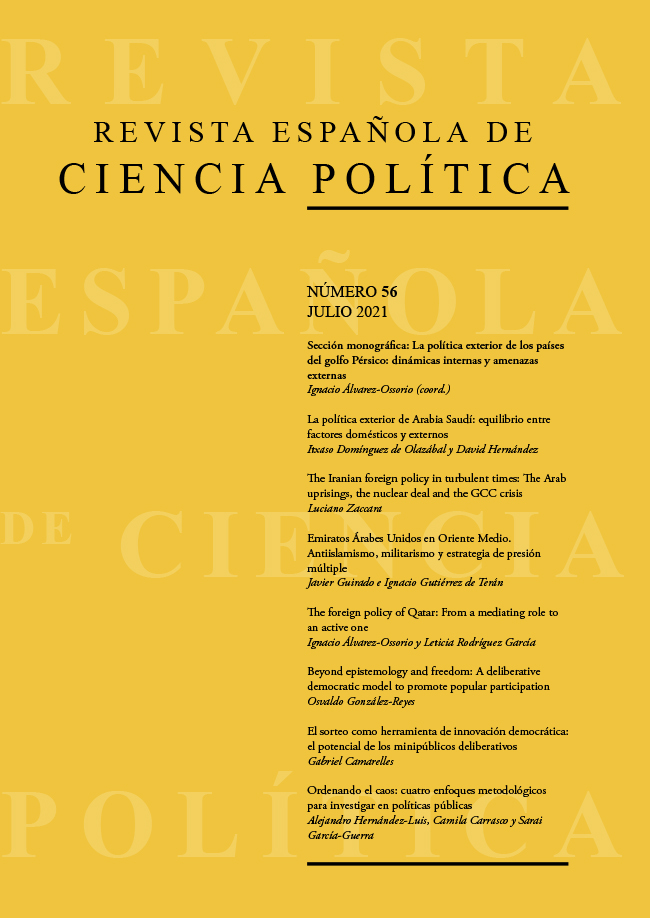Emiratos Emiratos Árabes Unidos en Oriente Medio. Antiislamismo, militarismo y estrategia de presión múltiple
DOI:
https://doi.org/10.21308/recp.56.03Palabras clave:
Emiratos Árabes Unidos, política exterior, Primavera Árabe, islam político, golfo Pérsico, Mohammed ben ZayedResumen
La política exterior de los Emiratos Árabes Unidos (EAU) ha experimentado un cambio sustancial desde el inicio de la denominada Primavera Árabe en 2011. Este artículo describe las características y razones principales de esta transformación, así como las posibles consecuencias de una proyección militar que rebasa los límites del golfo Árabe/Pérsico, hasta hace poco el principal ámbito de acción de la diplomacia emiratí. El enfoque toma en consideración, en primer lugar, la vinculación tradicional de EE. UU. con EAU y el cambio de percepción de las últimas Administraciones estadounidenses sobre la seguridad regional en el Golfo; la consagración del emir Mohammad ben Zayed como máximo dirigente de facto en el país y su alianza con el príncipe heredero saudí, Mohammed ben Salman; el ánimo de neutralizar la corriente democratizadora emanada de las revoluciones árabes y, a partir de ahí, la percepción emiratí de que el islam político, y en concreto la vertiente representada por los Hermanos Musulmanes, se estaba convirtiendo en el principal beneficiado de la erosión del régimen árabe tradicional. El artículo también propone que, a pesar de la convergencia con Arabia Saudí en numerosos escenarios, EAU ha mantenido una política exterior independiente basada en sus propios intereses, lo que ha reforzado su rol como principal contendiente en Oriente Medio.
Descargas
Publicado
Cómo citar
Número
Sección
Licencia
Derechos de autor 2021 Ignacio fernando Gutierrez de Teran Gomez-Benita

Esta obra está bajo una licencia internacional Creative Commons Atribución-NoComercial-SinDerivadas 4.0.






